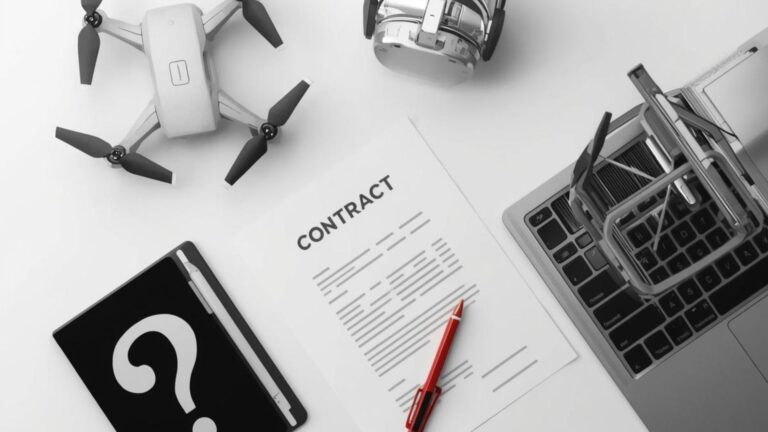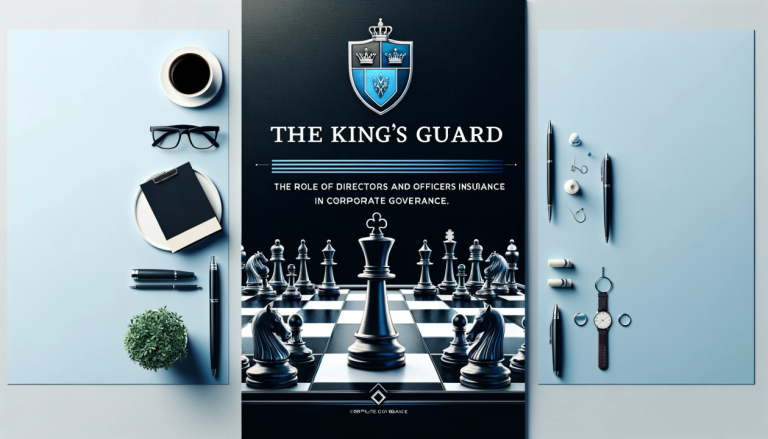Why Authors Need Media Liability Coverage
Authors face unique liabilities that other professionals may not. When you write and publish content – be it a nonfiction book, a memoir, an investigative article, or even a novel loosely inspired by real events – you open yourself to potential claims such as defamation, invasion of privacy, or copyright infringement. Unlike large media companies that might have in-house legal teams and insurance, individual authors often operate independently. A single lawsuit can be financially devastating to a writer. Media liability insurance for authors provides a crucial safety net, covering legal defense costs and any settlements or judgments if someone takes legal action over something you wrote.
It’s a common misconception that only journalists at big newspapers or publishers need this kind of protection. In reality, any author who publishes content publicly should consider liability coverage. This includes freelance writers contributing to magazines or websites, self-published book authors, bloggers with a wide readership, and even academic writers. For example, if you’re an author who writes exposés or true crime stories, the people featured (or those who believe they are depicted) might sue for defamation or emotional distress. Fiction writers aren’t completely immune either – there have been cases where novelists were sued under “libel in fiction” claims, alleging that a fictional character was a thinly veiled portrayal of a real person in a negative light. No matter how careful you are with your words, someone might take issue, and that’s where media liability insurance steps in.
Legal Risks Authors Commonly Face
To understand the importance of insurance, it helps to know the key legal risks for authors. Here are some of the main causes of action writers may encounter:
- Defamation (Libel): This is perhaps the most well-known risk. Defamation occurs when you publish a false statement about someone that harms their reputation. In written form, it’s called libel. An author could be sued for libel if, for instance, a biography contains an untrue damaging claim about a public figure, or if a journalist’s article inaccurately accuses a person of misconduct. Even fiction writers can be hit with libel suits if a person believes a character was clearly based on them in a disparaging way. Defamation cases can be complex – truth is a defense, but even baseless suits cost money to defend, which is why insurance is vital.
- Invasion of Privacy: Authors who write about real people (especially in memoirs, biographies, or journalism) must be cautious about privacy. Publishing private facts about someone that are not of public concern – medical information, personal correspondences, family matters – can lead to an invasion of privacy claim. For example, a memoirist revealing a former friend’s deeply personal secret without permission could be sued for public disclosure of private facts. Likewise, using someone’s likeness or story without consent in a way that they find intrusive might spark a lawsuit. Privacy laws vary by country (and state), but the risk is universal: if a subject of your writing feels you violated their privacy, you could face legal action.
- Copyright Infringement and Plagiarism: Authors often incorporate research, quotes, or references in their work. Using another creator’s content without permission can result in a copyright infringement claim. For instance, including a substantial excerpt from another book, or using a photograph in your blog post without a license, may infringe on rights. Plagiarism (presenting someone else’s work as your own) is an ethical issue that can also lead to legal trouble if it overlaps with copyright or contract violations. Media liability insurance typically covers unintentional copyright infringements. If you mistakenly include a copyrighted song lyric in your novel, for example, a policy could cover the cost of dealing with a claim from the music publisher.
- Misappropriation and Right of Publicity: Related to privacy and IP, this involves using someone’s name, likeness, or life story for commercial gain without permission. If an author writes a book and puts a real person’s face on the cover without consent, that person might claim a violation of their right of publicity or misappropriation of their likeness. Similarly, writing about a public figure in a way that implies endorsement or using a celebrity’s identity in marketing your book could lead to legal issues. An insurance policy can help defend against such claims by covering legal fees.
- Errors and Negligent Publication: Sometimes authors give advice or information that could inadvertently cause harm. A classic example is a how-to book or a blog providing financial or health advice – if a reader suffers a loss or injury following it, they might allege the information was wrong or negligently provided. A freelance writer for a financial blog who recommends a particular stock that later crashes might face a lawsuit from an angry reader who lost money (even if the claim’s merit is dubious, it requires defense). Media liability insurance (often considered a form of Errors & Omissions insurance for content) would respond to claims that your published advice or information was professionally negligent or caused damages.
This list is not exhaustive, but it highlights that writers face multi-faceted legal risks: someone might sue over what you said about them, what information you revealed, or how you used someone else’s material. The financial fallout from these suits can be enormous – legal defense alone could run into tens of thousands of dollars. That’s why having an insurance policy tailored for authors is so critical.
Publishers, Contracts, and Indemnity: Don’t Rely on Others to Save You
Many authors work with publishers who have their own liability insurance. However, it’s a mistake to assume that as an author you’re automatically fully protected under your publisher’s policy. In fact, publishing contracts often shift liability to the author through indemnification clauses. It is standard in the publishing industry for the author to agree to indemnify the publisher for any legal claims arising from the author’s work. In simple terms, this means if a lawsuit happens (say someone sues for libel over your book), you as the author must reimburse the publisher for any costs, damages, or legal fees that the publisher incurs, even if the publisher’s insurance initially pays for the defense.
For instance, imagine you wrote a memoir and a person mentioned in the book sues for defamation. Your publisher’s insurance might respond to defend the case, but the contract you signed could require you to pay back the deductible and any uninsured portion. Some authors have been shocked to find that even after a lawsuit is won or dismissed, they owe their publisher tens of thousands in legal fees. As one writers’ organization famously pointed out, even baseless lawsuits can cost authors in the “low six figures” in legal expenses – and those costs can boomerang back to the author due to contract terms.
Given these realities, media liability insurance becomes an author’s best friend. If you have your own policy, it can step in to cover those defense costs and any indemnification you owe, rather than having you personally bear the financial burden. In recent years, some large publishing houses have started offering insurance programs or resources for their authors because they recognize how critical this protection is (Penguin Random House, for example, initiated a media liability program for its authors after recognizing the gap). If your publisher offers such a program, it’s worth exploring; if not, obtaining individual coverage is wise.
Freelance writers and self-published authors have even more reason to secure their own insurance. If you’re self-publishing, you are the publisher, and you’ll have no one else to absorb or share the risk. If you contribute articles to various outlets as a freelancer, each contract might have indemnity clauses as described. Plus, not all outlets carry robust libel insurance for contributors. You don’t want to be the freelancer stuck with a lawsuit that a publication washes its hands of, citing the contract you signed.
How Media Liability Insurance Protects Writers
A media liability policy for authors functions as a legal and financial shield. Here’s what it typically does for you:
- Covers Legal Defense Costs: If you get sued over your writing, the policy will appoint an experienced media law attorney (usually paid for by the insurer) to defend you. This includes covering attorney fees, court costs, and other legal expenses from the moment a claim is made. For authors, having a knowledgeable libel or IP lawyer on your side – without having to pay them out-of-pocket – is invaluable. These attorneys understand nuances like First Amendment protections (in the U.S.) or public figure libel standards, which improves your chances of a successful defense.
- Pays Settlements or Judgments: Should the case conclude with a settlement or an adverse judgment (where you’re found liable for damages), the insurance will pay those amounts on your behalf up to the policy’s limit. For example, if an author inadvertently included a defamatory statement and decides to settle with the aggrieved party for $50,000, the insurance would cover that payout (minus any deductible you owe, if applicable). Without insurance, that settlement would have to come directly from the author’s pocket or assets.
- Provides Peace of Mind for Creative Freedom: Knowing you have coverage can actually empower better writing. Authors often self-censor or avoid certain topics out of fear of legal repercussions. While insurance is not a license to be reckless with facts, it does mean that if you tackle tough, important subjects – say you’re writing an investigative book uncovering corruption – you can do so with less fear. You still must adhere to journalistic standards and verify your work, but if someone sues just to intimidate or bankrupt you (so-called SLAPP suits, Strategic Lawsuits Against Public Participation), your insurer will fund your defense, and you can stand your ground. Essentially, media liability insurance helps level the playing field, allowing even individual writers to defend their work vigorously like a large organization could.
- Handles Claims Efficiently: Another benefit is that insurers often have expertise in handling media claims. They’ve seen many libel or infringement cases and can quickly assess the best strategy – whether it’s fighting in court, negotiating a retraction/apology, or settling quietly. This support means you, as the author, don’t have to navigate the stressful legal landscape alone or make tough calls without guidance. The insurer’s interest aligns with yours: resolve the claim in the most effective, lowest-cost way.
It’s worth noting that specialized writers’ liability policies exist. Some insurance providers offer policies specifically tailored for freelance journalists or authors, sometimes with membership organizations endorsing them. These can be more affordable group rates or have features like lower deductibles for individuals. Even if you’re part of such a program, always understand the terms (coverage limit, exclusions, etc.). For example, some policies might exclude intentional wrongdoing (they won’t cover you if you knowingly published false information or committed plagiarism deliberately). But if you’re writing in good faith and someone still sues, you’ll be covered.
Tips for Authors Seeking Insurance
If you’ve decided to get media liability insurance as an author, here are a few quick tips to help you through the process:
- Assess Your Risk Profile: Consider the kind of writing you do. Are you writing hard-hitting exposés, or are you producing travel blogs and cookbooks? The higher your risk content, the more coverage you should consider. High-risk writers (investigative journalists, true crime authors, etc.) should lean toward robust coverage limits. Lower-risk authors might opt for a modest policy primarily for peace of mind.
- Choose the Right Coverage Limits: Many freelance author policies offer options like $100,000, $250,000, $500,000 or $1 million limits. Think about worst-case scenarios – a protracted libel case could easily cost six figures in defense. For authors in the U.S. or U.K. where legal fees are high, a $500k to $1M limit is not unreasonable even for individuals. Balance this with what you can afford in premium.
- Look into Professional Associations: Organizations like national writers’ unions, journalists’ associations, or guilds sometimes partner with insurance brokers to provide access to media liability insurance at group rates. If you’re a member of any writing community, check whether they have recommendations or programs. A selective association (one that has standards for membership) can also signal to insurers that you’re a professional, which might help your application.
- Be Honest on the Application: When applying, you’ll likely fill out a questionnaire about your work. Be truthful about any past incidents (even if no claim was filed, like a threat of a lawsuit), and about how you handle your fact-checking or research. Insurers appreciate candor and good risk management. Hiding something could lead to denial of coverage later if discovered.
- Don’t Wait Until It’s Too Late: Importantly, get insured before you have a problem. Media liability policies are usually claims-made (meaning they cover claims first made during the policy period). If you suspect a lawsuit is brewing or you’ve received a nasty legal letter, you generally can’t buy insurance to cover that existing issue. So, it’s best to have a policy in force continuously while you’re publishing. Some policies can include a retroactive date to cover prior works – if you’ve been publishing for years uninsured, ask if the insurer can cover your past publications as well (sometimes they will, sometimes not, or they may exclude “known incidents”).
By obtaining media liability insurance, authors protect themselves against the unpredictable. You can write with more confidence, knowing that if someone drags you into court, you won’t be alone and financially ruined by the fight. This allows you to focus on what you do best – writing – while the insurance stands by to handle any legal storms that might come.
Conclusion: Safeguarding Your Writing Career
For authors, words are not only powerful – they can also be dangerous. In a world where litigation is a risk for anyone who speaks out or tells a story, media liability insurance is as essential to an author as a life jacket is to a sailor. It provides security amid uncertain waters. The cost of coverage is relatively small (often a few hundred dollars a year for individuals) compared to the extreme expense of dealing with a lawsuit solo.
Whether you’re a debut novelist, a seasoned nonfiction writer, or a freelance journalist hustling for gigs, consider protecting your livelihood with media liability insurance. It ensures that your creative voice can be heard and your stories told without one legal claim capsizing your finances. In short, media liability insurance for authors lets you write boldly and responsibly – knowing that if someone challenges your work, you have the resources to respond and prevail.






























































































































